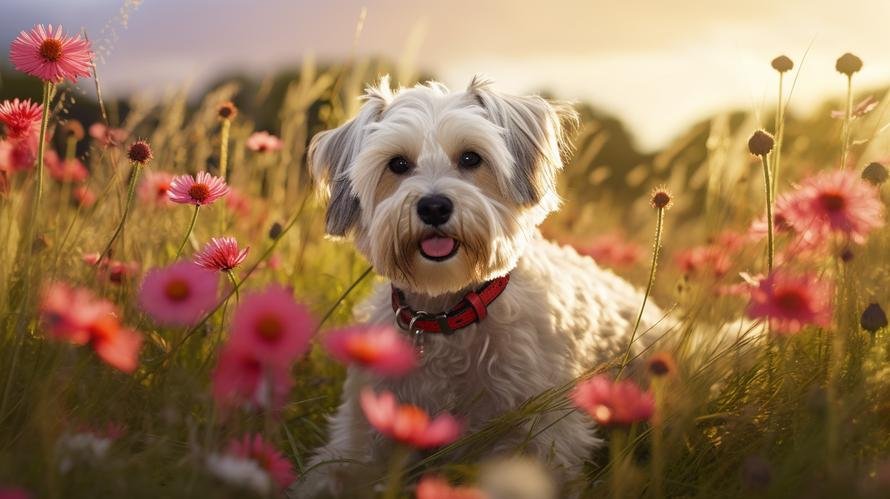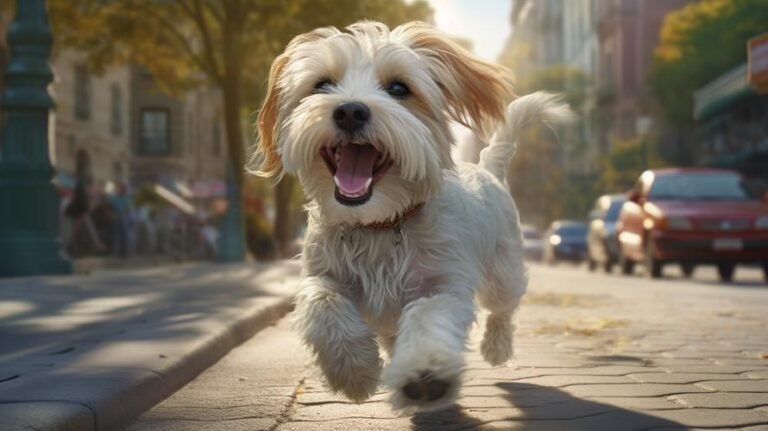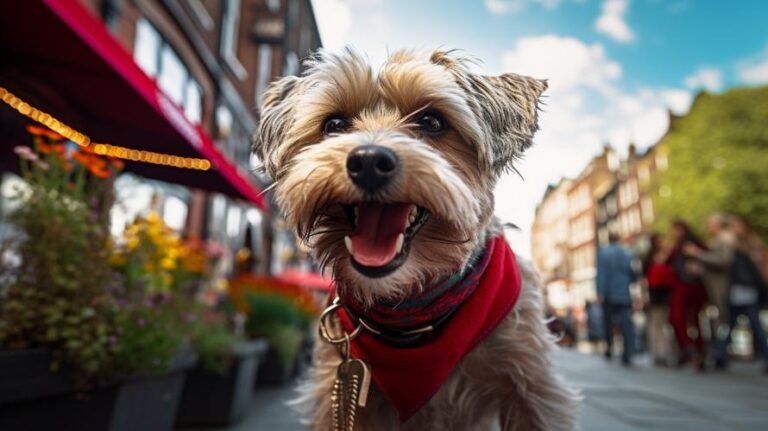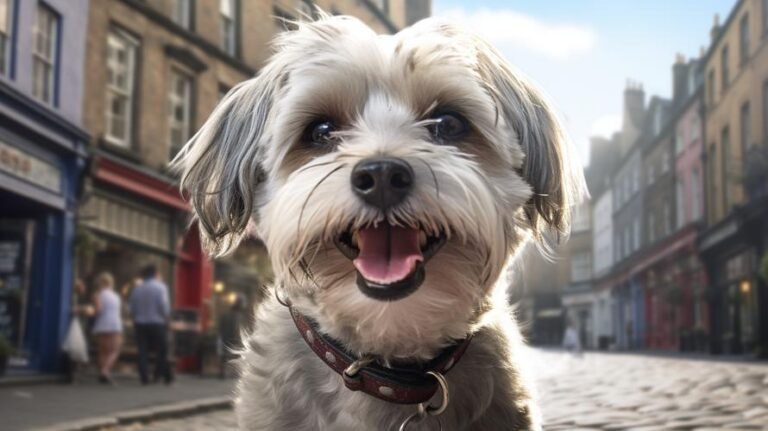Did you know the Dandie Dinmont Terrier, an adorable pooch with a distinct “top-knot” of hair on its head, is named after a fictional character? That’s right! This breed got its name from a character in Sir Walter Scott’s novel, “Guy Mannering.” And now, as proud owners of this unique breed, we often find ourselves pondering over the best way to ensure our Dandies have diets that keep their tiny bodies and bold spirits in tip-top shape. One of the biggest nutritional debates in the world of dog diets today is the question of whether to feed our canine companions grain-free food.
It’s a choice that’s not just trendy but requires careful consideration, as with any change to your pet’s diet. While every Dandie Dinmont Terrier is as unique as their quirky name, understanding the role grains play in their diet can help you make an informed decision. So, let’s dive into the world of canines and grains, shall we?
First off: what’s the deal with grains? Grains are seeds from cereal plants, like wheat, rice, and corn, which have long been included in many pet foods as a source of carbohydrates. They provide dogs with essential nutrients, including vitamins, minerals, and fiber. However, a movement towards grain-free diets has gained momentum, led by claims that grains cause allergies, are unnatural for dogs to eat, or contribute to health issues like obesity.
But before you jump on the grain-free wagon, consider this: most dogs, including Dandies, aren’t inherently allergic to grains. In fact, food allergies in dogs are quite rare, and when they do occur, it is more often caused by proteins like beef or chicken rather than grains. Grains are a great source of energy and other vital nutrients that can help keep your Dandie Dinmont healthy.
Nonetheless, let’s say your Dandie shows signs of an allergy, such as itching, digestive upset, or ear infections. Then it might be worth discussing with your vet about conducting an elimination diet to pinpoint the cause. If grains turn out to be the culprit, only then does a grain-free diet become a viable solution for your furry friend. Otherwise, there’s no solid evidence that grain-free diets are superior to traditional ones.
Now, if your Dandie is already eating a grain-free diet and thriving, you might think there’s no reason to stir the pot. Beware though, choosing a diet solely because it is grain-free could lead you to overlook other essential dietary considerations such as the balance of nutrients, the quality of the ingredients, and the overall calorie content. In 2018, the FDA began investigating a potential connection between grain-free diets and a type of heart disease called dilated cardiomyopathy (DCM) in dogs. While no direct causation has been established, it’s a reminder that grain-free isn’t risk-free.
Grains can even have benefits specific to the Dandie Dinmont Terrier. The fiber in grains helps promote a healthy digestive system, preventing issues like diarrhea and constipation – not the most glamorous aspect of dog ownership but undeniably important. They also provide essential fatty acids, proteins, and other nutrients that help maintain your Dandie’s unique double coat, which requires regular grooming due to its mixture of soft and hard hairs.
When we think about these bright-eyed, bushy-tailed terriers, with their history as skilled hunters of otters and badgers, their diet should reflect their energy needs. Active and energetic, Dandie Dinmonts require a balanced diet that fuels their playful antics and supports their muscular little bodies. Grains can be part of this balanced diet, offering a sustainable energy source that keeps them going throughout their daily adventures.
If you are considering feeding your Dandie a grain-inclusive diet, aim for whole grains like brown rice, barley, and oats, which are less processed and retain more of their natural nutrients than their refined counterparts. In contrast, white rice and wheat flour have been stripped of valuable nutrients during processing and are thus less beneficial. Whatever your choice, quality is paramount. Look for dog food brands that put the same care into their grain-inclusive options as their grain-free ones.
Beyond just grains or no grains, it’s essential to ensure that the main ingredients in your Dandie’s diet are high-quality proteins. These should always top the list, followed by healthy fats, digestible carbohydrates, and a scientifically balanced mix of vitamins and minerals. In some cases, grain-free diets substitute grains with other carbohydrate sources like legumes, which can be harder for some dogs to digest, leading to issues in nutrient absorption.
There is no one-size-fits-all diet for every four-legged friend – what works like a charm for one Dandie may cause gastrointestinal grief in another. If you are unsure about your Dandie’s diet, it’s wise to consult with a veterinarian or a pet nutritionist who can provide professional advice tailored to your specific dog.
When dealing with diet and nutrition, remember the ultimate goal is to support your Dandie’s health, longevity, and happiness. As you weigh the pros and cons of grain-free diets, consider your own Dandie’s health history, energy levels, and any food sensitivities. It’s not about following a trend but understanding your pet’s needs, so your delightful Dandie can continue to bring joy and merriment to your life for years to come.
In conclusion, whether your Dandie Dinmont Terrier should eat grain-free is a question with no definitive yes or no. It’s a personal choice that should be made based on the individual dog’s health, dietary needs, and lifestyle. The key is finding a well-balanced diet that supports your pet’s well-being, whether that includes grains or not. Keep in mind, the best diet for your Dandie is one that keeps their tail wagging, their eyes sparkling, and their barks as joyful as the day you first brought them home.



